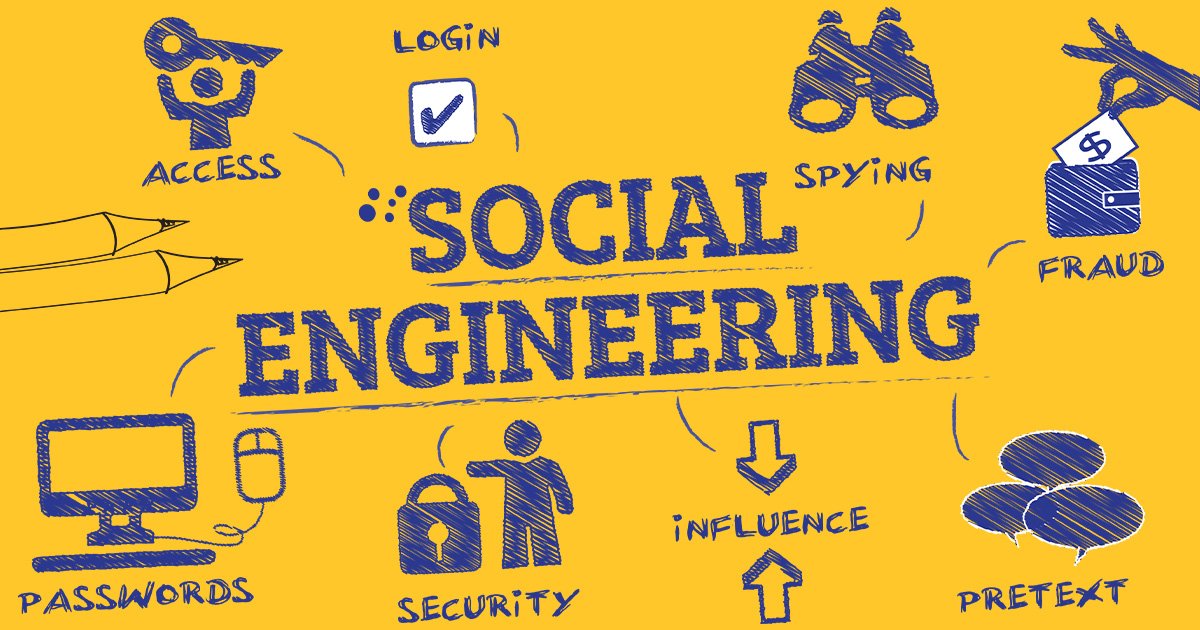
What is Social Engineering?
Between budgeting, checking your credit report, paying your mortgage, there is a lot that goes into your financial wellness. However, the scariest part may just be the chance that you can log in, and all your hard-earned cash is missing. Fraud is a very real part of our lives and one of the most common is social engineering, which is also known as human hacking.
Fraudsters have figured out that normally it’s easier to trick someone into giving them information than to hack your software. It may seem like non important information at the time, but it may lead to access to your computer or your financial account. So how can you protect yourself?
What is social engineering?
First let’s start with what exactly social engineering is. Also known as human hacking, it’s the art of manipulating a person so they give up confidential information in order to take over your software, get a password, or get access to your bank information. A hacker will use different types of communication in order to gain access and get the information they need. They can use the phone, email, or even in person contact. This type of fraud is built on trust, so they will do their best to appear legitimate. They can even spoof caller ID to make it look like they are calling from your financial institution.
What does social engineering look like?
Social engineering can take many forms and come from many places. Let’s take a look at a few.
- Social Media: When you get a friend request from someone you have never met, it can feel pretty obvious they might be trying to commit some type of fraud when they are curious about your mother’s maiden name. However, hackers have also realized this. They will create accounts that look just like a friend, family, or maybe a celebrity you follow. They use the trust already built with those you know to gain access.
- Email: E-mail scams have been around for as long as e-mail itself. A common example is pretending to be tech support of a company you use. This can say there was either a breach, or unusual activity and they invite you to log in using their link. When you log in, this link gives them your user name and password to your real account.
- You Won!: This is basically anything that looks too good to be true. You won a bunch of money, or a free cruise, they just need some information to hold your spot. We know money can be tight and it looks like a blessing, but it’s likely a scam in disguise if you don’t remember signing up for anything.
How Can You Protect Yourself?
It can sound scary, but the best line of defense is you! With a few steps, you can help protect yourself from these scammers.
- Trust your Instinct: If something feels off and they are asking you to share a code, hang up, look up the number to the company yourself, and call back. This can not only protect you, but help alert your financial institution to new scams so they can help protect not only your account, but other members who may be targeted.
- Take a breath and slow down: Most of these attacks will show some type of urgency. Whether it’s calling now or they will lock you out of your account, or get you in trouble in some type of way, it will always have a rushed timing to it. Take a minute, and do your research before reacting.
- Check for misspellings: Check the person it came from, plus the e-email itself. A lot of scammers do not seem to take the time to make sure things are spelled correctly. This is one of the easiest red flags to see.
- Hover over the URL: If you hover your mouse over a URL, you can see a preview of where it is taking you. If it isn’t matching the official website, or it seems suspicious, do not click.
Just remember, fraudsters are evolving every day, but you can still protect yourself. If you are ever contacted by someone posing as Community First, be aware that we will NEVER ask for your Online Banking credentials or your secure access code. If you are contacted for this information, please hang up immediately. Contact us directly and we will help verify your account is safe.
Don’t forget you can also sign up for our debit card fraud alerts to help protect your account.
More Fraud Prevention and Safety Tips from Community First
- Using Buy Now Pay Later Apps
- Are Peer to Peer Payment Apps Safe?
- Protect Your Personal Information
- Protect Yourself Against Quishing
- Fraud Prevention Tips for the Holidays









